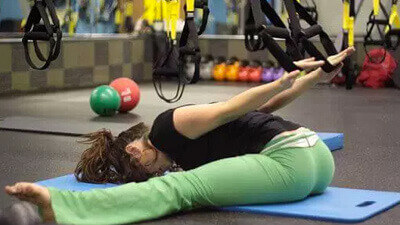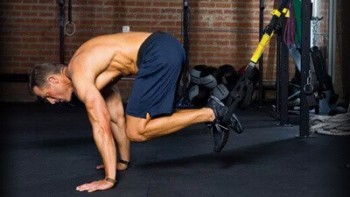Whether you’ve noticed increased soreness after trying a new workout routine or want to improve your approach to fitness, understanding the keys to post-workout recovery are important.
Each time you work out, especially if you have a strenuous workout routine, your muscles experience micro-tears that are essential for growth but can lead to discomfort, and possibly injuries if you don’t take care to follow the right post-workout routine.

Getting enough sleep is vital to your wellbeing
Soreness, fatigue, and muscle recovery are all inevitable side effects of a hard workout, but that doesn’t mean you can’t do anything to minimize these aspects of your workout regimen.
Just like you plan for your gym sessions, you should be knowledgeable about what you can do after to help body repair after exercise and prepare for your next training day.
Here are a few TIPS you can do to have a faster recovery after a strenuous workout:
Post-Workout Stretching
It’s easy to wrap up your gym session after finishing your last reps, but there’s more to a good workout than the exercises themselves. After you finish your workout, make sure to set aside time to stretch.
Stretching is good for flexibility, rebuilding muscle fibers, and increasing circulation. Try implementing some of these stretches into your post-workout routine to help speed up recovery:
- Seated neck release
- Deltoid stretch
- Shoulder opener
- Bridge stretch
- Trunk twist
- Knee tucks
- Seated spinal twist
Depending on the areas of focus during your workout, you can choose which stretches to include each day.

Stretching and Flexibility Exercises
We may stretch in various ways. What is the most famous form of stretching and how to do static, dynamic, active and passive stretching exercises?
Hydrate Sufficiency
Keeping yourself hydrated before, during, and after your workout is important not only for your overall well-being, but to aid in recovery. When you’re hydrated, it can help aid in the protein synthesis process, which is essential to muscle recovery after exercise.

Water, the best exercise recovery supplement 🙂 / photo: photo: Unsplash.com
The standard minimum daily water consumption is approximately 64 ounces.
However, according to Harvard Health, those who follow more strenuous workout routines need to go above and beyond these basic recommendations in order to maintain optimal hydration.
In addition to drinking plenty of water, other beverages can also help speed up recovery such as certain nutrient-rich drinks and matcha green tea. If you get bored with water, try to integrate one of these alternatives into your day to make sure you stay sufficiently hydrated.
Optimize Your Diet
While you might usually be focused on powering-up before your gym session, nutrition is also an important part of post-workout recovery. For faster muscle recovery, you want to make sure you eat enough protein.

Nutrition is an important part of post-workout recovery

10 High In Protein Meals That Don’t Entail Chicken
Most people just go the familiar route and use meat as their main source of protein. If you are bored with chicken, you should take a look at some of these alternatives.
Above and beyond your basic protein shakes, these ideas can help you put together good post-exercise snacks that can nourish your body with what it needs:
- Chobani Less Sugar Greek Yogurt with banana
- Avocado toast with egg
- Pita and hummus
- Peanut butter and apple slices
To fully optimize your diet, you need to make sure you’re getting all the nutrients you need, which is where supplements can come in as a useful tool.
Some, like Everything Armor antioxidant by Objective, are even specifically designed to help with workout recovery.

Today’s Most Popular Diets To Try Out
The Internet is filled with fad diets and finding one that works for you can be tricky. Here is a guide on the most popular diets, their requirements and their benefits.
Prioritize Sleep
For many of us, sleep is a necessity but isn’t necessarily a priority, especially when our to-do’s start to pile up. However, if you want to achieve faster recovery, it needs to be a priority to you.

Sleep plays a vital role in good health and well-being throughout your life / Photo by Maddi Bazzocco on Unsplash
A sleep deprivation can interfere with your performance.
That’s because while we sleep, protein synthesis takes place and growth hormones are activated, which help with muscle repair and building—both are important if your fitness goals have to do with improving your physique.
👇 We highly recommend this book 👇
No products found.
According to the National Sleep Foundation, most adults need between seven to nine hours of sleep per night to be fully rested and enjoy the full benefits sleep provides.
In order to ensure that you’re getting adequate sleep to keep up with your training routine, make sure you stick to a set sleep schedule (going to bed and waking up around the same time every day), get the recommended amount of sleep for your age or activity level, and limit disruptions that interfere with peaceful sleep (sounds, lights, etc.).

To Get Better Sleep, Strengthen Your Core — Here’s How
According to the American Sleep Association, 50-70 million American adults suffer from a sleep disorder. Be patient and consistent, and soon you’ll be sleeping soundly once again. Here is how to do it.
If you’re having trouble with getting to sleep, try a mediation app like:
If you want to keep training hard and achieve your fitness goals, you need to be dedicated to giving your body the time and support it needs to properly recover. These tips are a good start, but it takes self-discipline to put them into action.












